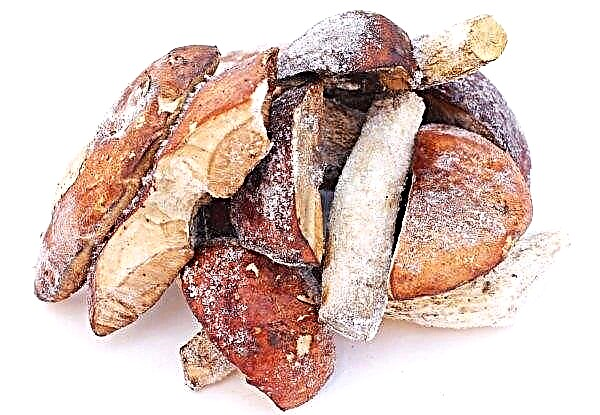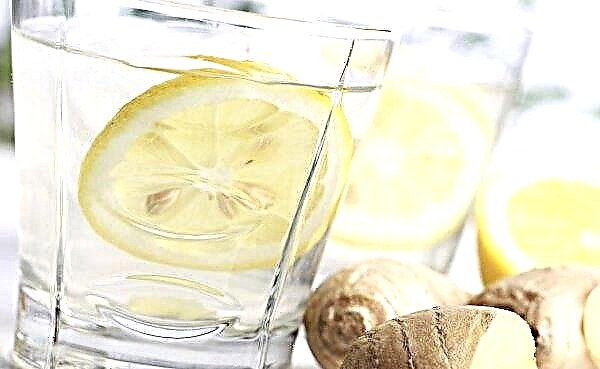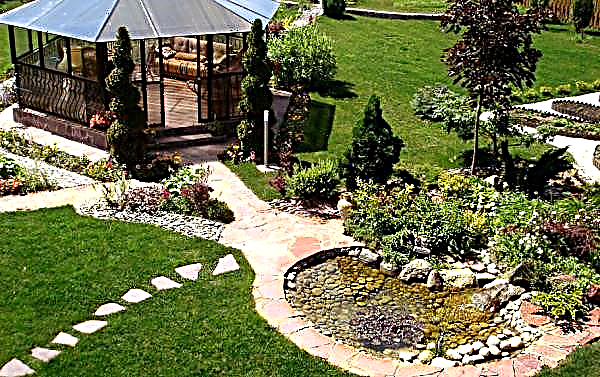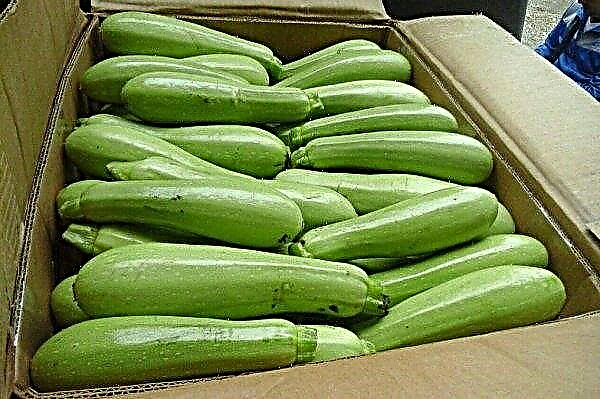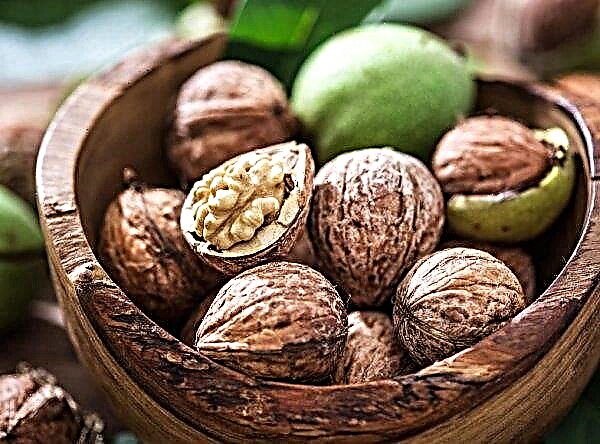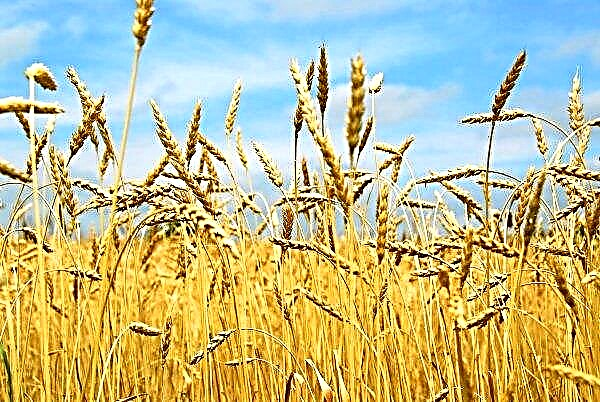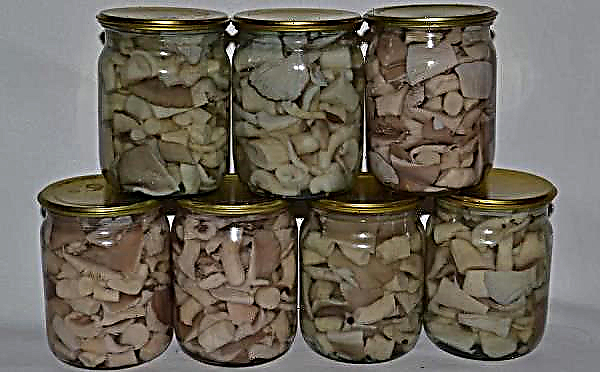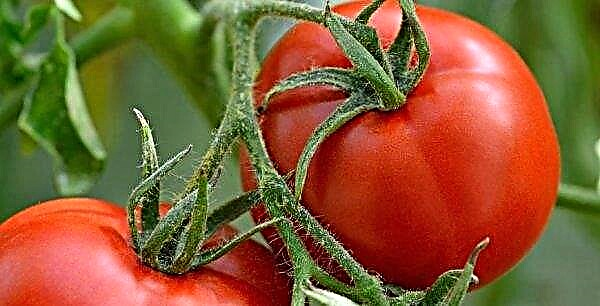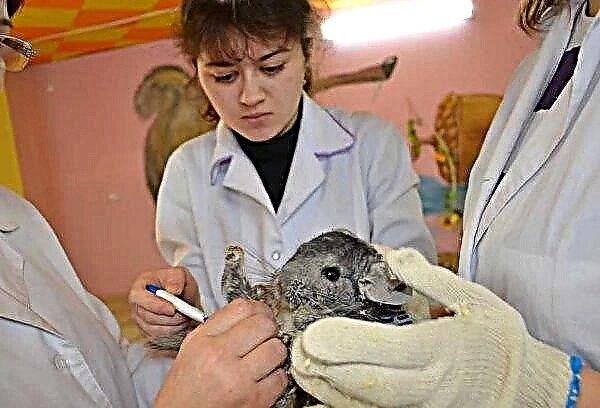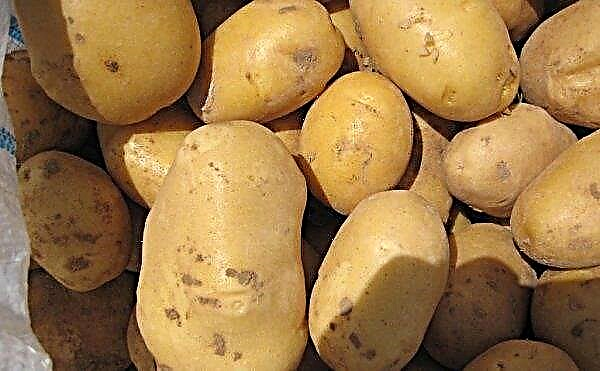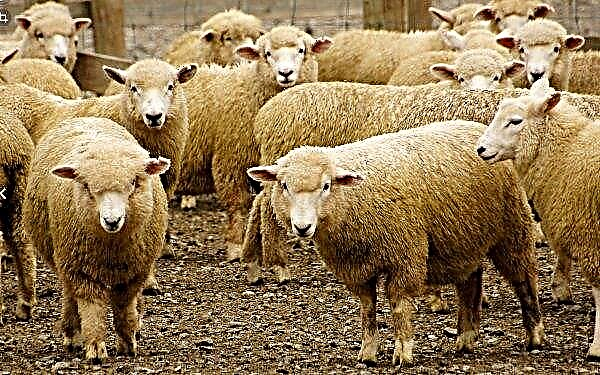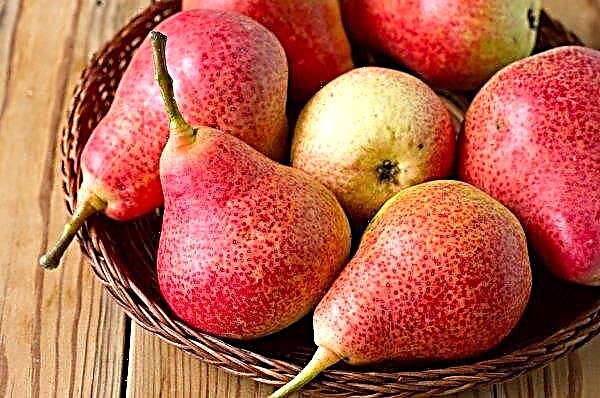Ginger, like other immunostimulants, increases the resistance of the child's body to pathogens in the environment - immunity. The plant also has antiseptic and anti-inflammatory properties. Read more about methods of its application, properties, and preparation of ginger tea.
Ginger as a natural immunostimulant
To increase the immunity of the child, it is recommended to take immunostimulants. The substances contained in ginger inhibit microbial activity and allergic reactions, which has a positive effect on the body and increases its resistance to diseases. Therefore, you can well use it to strengthen immunity instead of synthetic drugs.
Did you know? Ginger — very ornamental plant. At home, in a subtropical climate, it is used for landscaping gardens and parks.
Chemical properties and characteristics
According to nutritional tables, fresh root contains:
- water: 81.3%;
- protein: 2.2%;
- fat: 0.9%;
- minerals: 1.2%;
- fiber: 5.4%;
- carbohydrates: 9%.
 The nutritional composition varies depending on its variety (fresh or dry), growth conditions (climate, soil composition, moisture), processing, preparation and storage conditions
The nutritional composition varies depending on its variety (fresh or dry), growth conditions (climate, soil composition, moisture), processing, preparation and storage conditions
The beneficial properties of ginger root are explained by its rich set of biologically active components. It consists of more than 400 different compounds. Most of them have antioxidant and anti-inflammatory properties. The anticancer potential of the plant and its ability to treat degenerative changes in the musculoskeletal system (arthritis, rheumatism), the digestive tract and the cardiovascular system are also well studied.
Did you know? When the ginger root ages, the content of the essential oil in it increases. That is why juice is made from fresh root, and oil from one that has been lying for at least 9 months.
- The healing properties of the plant:
- anti-inflammatory;
- sweatshops;
- antibacterial;
- antiviral;
- immunomodulatory;
- tonic;
- soothing.
The chemical composition of the plant contains many useful vitamins and minerals:
| Vitamins | Minerals |
|
|
The effect of ginger on the immunity of a child
Exposure to the body begins with purification. Ginger removes toxins and free radicals from the body. As a result, the activity of various systems is normalized, resistance to diseases is increased, and immunity is strengthened. A sufficient amount of vitamins also enters the body, which is important in conditions of their seasonal deficiency. Regular consumption of tea with ginger, lemon and honey helps restore water balance, which is also positive for the child's body.

For many years, home remedies have been used to treat children's health problems. They do not speed up the metabolism too much and have a minimal amount of side effects. Ginger is one such remedy.
- Useful properties of the root for the children's body:
- It promotes the secretion of saliva and gastric juice, improving the child's appetite and digestion. The active ingredients present in the composition stimulate digestion and absorption. They relieve constipation and flatulence by increasing muscle activity in the gastrointestinal tract.
- The plant is an antiemetic (prevents nausea and vomiting), which is especially useful when traveling with motion sickness.
- It has a positive effect on food intake and metabolism.
- It has strong antibacterial and, to some extent, antifungal properties. Studies have shown that the active constituents of plants inhibit the growth of harmful bacteria such as E. coli, staphylococci, streptococci and salmonella.
- The plant is a powerful stimulator of blood circulation, causing a stimulating effect on the heart muscle, thinning the blood and improving blood circulation. It is believed that improved blood circulation increases cellular metabolic activity, thereby contributing to anti-inflammatory and antispasmodic effects.
- Protects against respiratory infections. When a child begins to show the first signs of flu, a hot cup of ginger drink (tea or herbal infusion) can clear nasal congestion and also stimulate the liver to remove toxins from the bloodstream.
- It is an antiseptic expectorant that relieves a child of coughing.

Indications and limitations
The root of this plant can be combined with other herbs and spices in the child’s diet in the right proportions. Since most culinary herbs and spices have anti-inflammatory and antimicrobial effects, when combined with ginger, the therapeutic effect is enhanced.
Although ginger is widely used as a dietary component of the diet, the average daily recommended dose for children has not yet been precisely determined. It is not recommended to give it to children under 2 years old. After two years, the root can be used to treat nausea, gastrointestinal cramps and headaches.
Important! The main contraindication is that ginger should not be taken with blood thinners.
High doses of the root can cause mild heartburn, diarrhea, and irritation of the oral mucosa. In general, a plant is considered a safe herbal remedy. It may well be included in the daily diet in small doses.

Tea with Ginger, Honey and Lemon
If you add a ginger drink with honey or lemon, this will increase its usefulness and enrich it with additional substances. Due to the high content of vitamin C, lemons effectively fight colds. Honey will add antibacterial activity. It is advisable to drink such tea in the morning before eating and then in the afternoon, both adults and children. The tool can be used as a prophylaxis, as well as for the treatment of viral infections.
Important! Children under the age of one are not allowed to give honey. In their body there are no necessary enzymes that can process it.
Ginger and honey are equally beneficial for a baby’s health when coughing, colds and high fever.. But they can also be part of the daily diet as a means of prevention. Spice gives a special taste and speeds up the absorption of substances, while honey is absorbed more slowly, emphasizing the natural taste of food. Both products contain many vitamins and antioxidants.
The recipe for ginger tea with honey and lemon

110 minutes
fresh ginger root
1 tsp
black or green tea
1/2 tsp
Nutritional value per 100 g:
- Peel the root, cut into small pieces and mix with tea leaves.
- To boil water.
- Pour boiling water over the ginger and leave for 5 minutes.
- Add honey and lemon juice to the slightly cooled drink.
To serve the drink cold, add ice cubes or a little sparkling water.Important! There is no evidence that ginger is an allergen. But some kids don't like its taste. Therefore, add it in small quantities to allow the child to get used to the taste.

Ginger tea perfectly strengthens the body's resistance to colds. If there are no contraindications, be sure to give your child such a healthy and tasty drink in the offseason. When preparing foods with spices, remember that babies are demanding on taste, so always start with a small amount and gradually increase it if the child does not mind.

